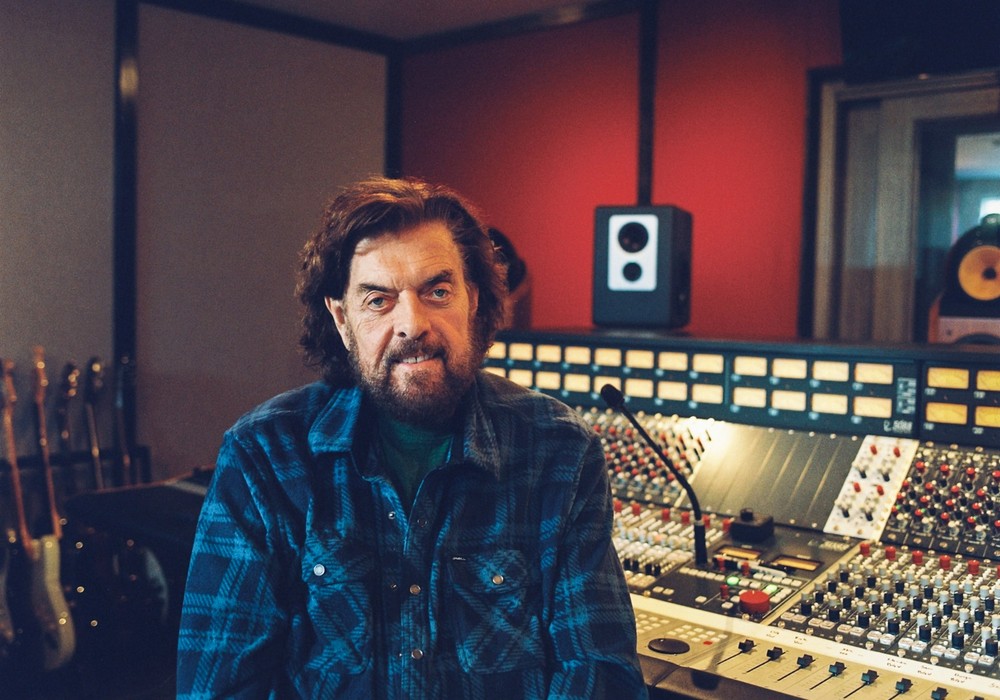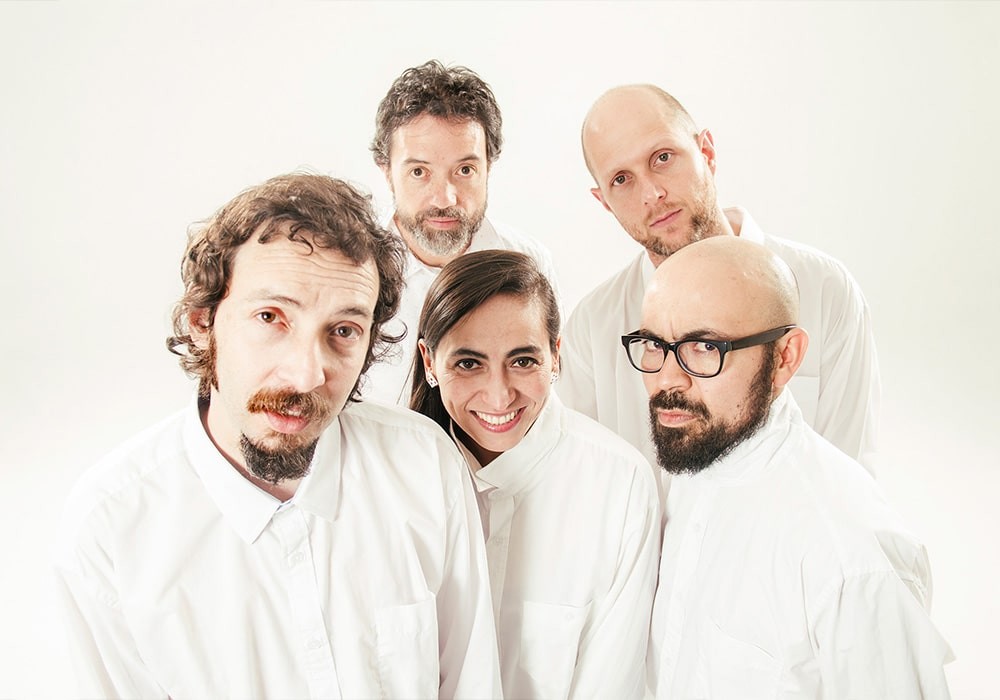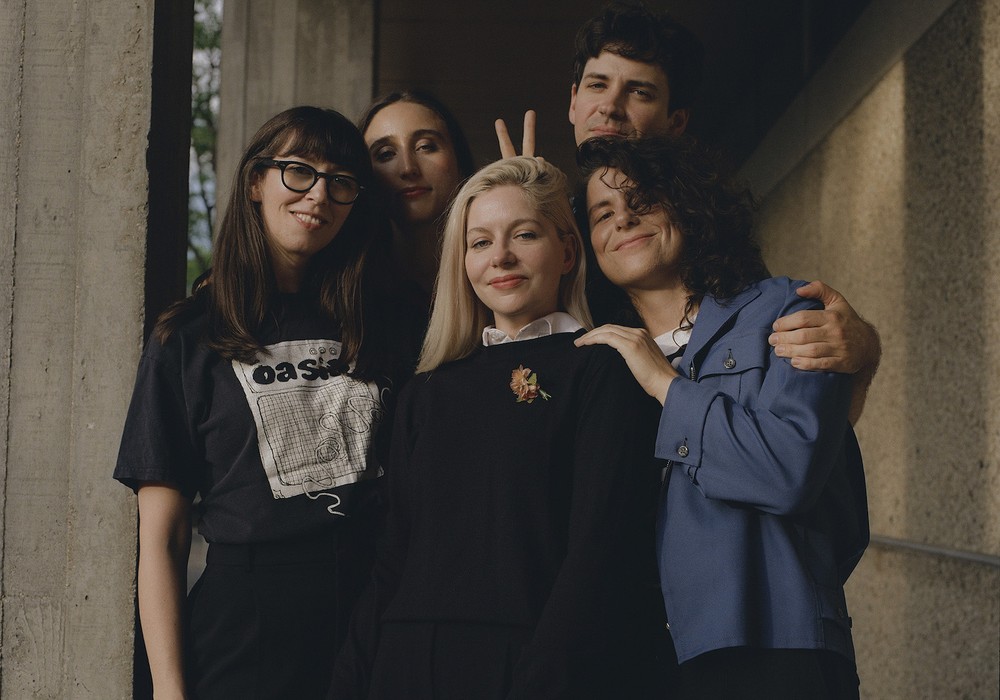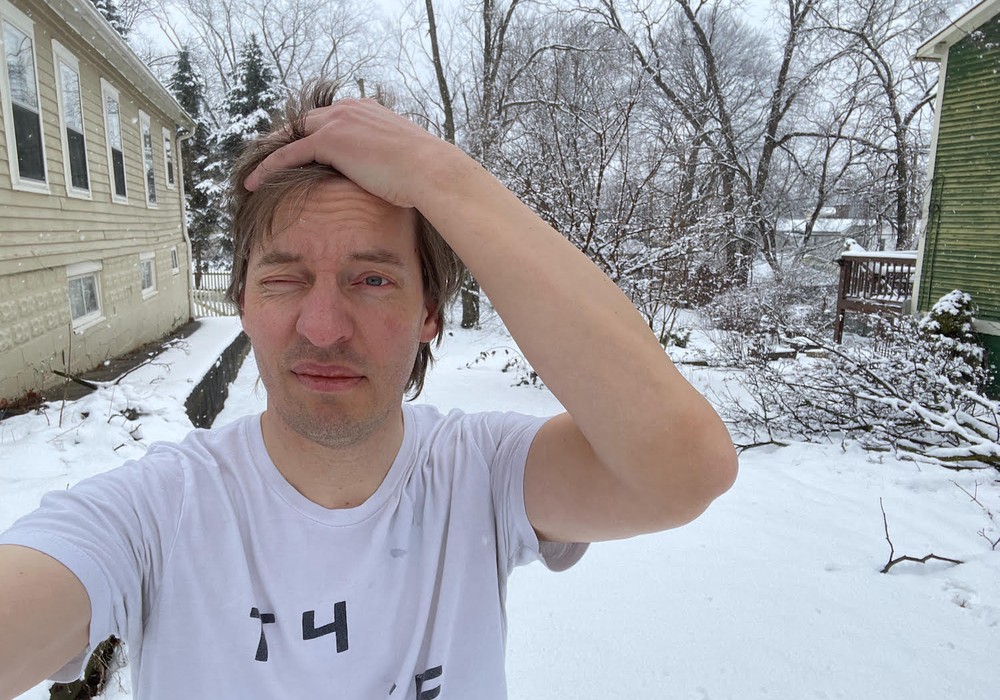The inscrutably monikered Blood Incantation burst out of Denver in 2015 with their Interdimensional Extinction EP. Expanding their sound over two breakthrough full lengths and the “synths-only” Timewave Zero, the buildup to Absolute Elsewhere’s recent release reached a fever pitch rarely seen in the cosmic death metalverse or beyond. Traveling to Berlin in the summer of 2023 to record at Hansa Studios [Tape Op #95] with Arthur Rizk [#150], Absolute Elsewhere is the band’s “big album” that delivers a million surprises across two side-long tracks. The three weeks of sessions are lovingly presented in All Gates Open, an hour long documentary about the power of collaboration, inspiration, and rare record shopping. I spoke with guitarist/vocalist Paul Riedl, producer Arthur Rizk, and assistant engineer Aidan Elias about the making of the album and the soundtrack for the documentary, of the making of the album. If that’s too much to comprehend… concentrate.
Paul Riedl
What was the band’s process in Denver leading up to the recording sessions? Your previous albums, Starspawn and Hidden History of the Human Race, were notably recorded in analog without click tracks.
PR: We did extensive pre-production in our rehearsal space for almost nine months, practicing four to six days a week for four to eight hours. This was the first time we’d recorded to a click, and we spent a lot of time refining that one BPM at a time. It’s easier to refine 20 minute songs into sections with a click track playing in a loud muffled room and shouting, “Hey, you know that part 12 minutes ago? Should that be a little faster?” We each have computers with [Apple] Logic at home for our individual projects, but we do all of our demo recording for Blood Incantation in the rehearsal room with Logic and a Mac. Someday we’ll have a big room with our own studio.
You and Arthur Rizk have a close history of collaboration through a variety of projects.
PR: Spectral Voice and Wayfarer both recorded their recent albums with him in Philly at Redwood Studios. He’s also mixed or mastered my ambient music as Hoverkraft, and done live sound for us. When Arthur was previously at Hansa recording Kreator, he would be texting us photos of gear used there by Eloy, David Bowie, or Tangerine Dream. He can incorporate “useless sounds” into a mix similar to Conny Plank, where everything is a textural component. One of the most critical things he brings to the studio is tact. He knows what to say to get the best take out of everybody without resorting to the pressure of “we’re burning tape, time is money.” He’s a tremendous creative force for anyone in the studio, in any genre.
Morris [Kolontyrsky, guitar] speaks in All Gates Open on the importance of setting up inspiring objects around the studio. The Hansa live room is decked out with the spoils of your Berlin record shopping.
PR: Our practice space at home is full from floor to ceiling of concert posters and ephemera of 50 years of music history, including our place in that continuum. Everywhere you look should feel inspiring for you to create. When we’ve recorded locally with Pete DeBoer at World Famous Studios, we’ll bring in crystals, salt lamps, and posters to try to decorate the studio like a movie set. Hansa also has a great vibe as the carpets and the space remain unchanged for 50 plus years. When Morris shows off the Eloy Ra record it’s because it was recorded in that same room. There’s a picture of Brian Eno [Tape Op #85] sitting on those sunken couches in the control room by the door open, and it’s the same door we’d go through to hang out on the roof. Being at Hansa demystifies these legendary figures and humanizes their albums and their ambitions. We also went to a Depeche Mode concert the night before we went to the studio, and they were playing to 80,000 people, performing songs recorded in those rooms.
You were booked there for 21 days?
PR: We had the entire run of the top floor studio with no other sessions going on. Every day we’d be greeted by in-house engineer Kian Moghaddamzadeh and would get to work. Prior to Hansa, we rehearsed at Noisy Room Studios for ten days, performing the two songs in full up to 60 times. By the time we recorded, Isaac [Faulk, drums] was able to perform “The Message” in one take, although we had to punch in for his shoe flying off! That entire section – from the ‘60s part, to the drum roll, up to the speed metal part – was performed in real time from muscle memory. From having done it relentlessly so many times. We were able to get that perfectly on beat without looking at the waveform or hearing the click… we were just going. We recorded drums to tape and then brought that into Pro Tools to track over. I’m biased towards live analog recording, but I think the album feels so alive and human because of the creative and collaborative energy. That’s a testament to Arthur’s production and the synergy operating within the group at that time. The mix on Absolute Elsewhere is so dense and hot, but if you take the time to focus you can pick out every layer. If you take a step back, you get mowed over by this lava, but it’s also delicate enough that it has room to breathe.
You described All Gates Open as a Werner Herzog-inspired documentary, and went so far as to produce an original score for it.
PR: We’ve always been interested in soundtracks, film scoring, and making audio-visual art. Timewave Zero was a planetarium soundtrack for a film about space that doesn’t exist. For the All Gates Open soundtrack, we pulled from the music we made during the Timewave Zero sessions. There’s a sensitivity and bucolic nostalgia to the score even though it’s documenting making a brutal metal album. It’s the new age leaning ying to Timewave’s brooding and ominous yang. We were adamant about doing an Atmos and 5.1 mix, and making that universally attainable for the listener. I’ve only heard the 5.1 mix so far at the premiere of The Stargate at Brain Dead Studios in L.A. The whole band noticed things popping out of the mix that we hadn’t heard. We want these formats available to provide the listener a multifaceted immersion into the music itself; that’s the goal.
It was cool to see recent Tape Op interviewee Steve Roach [#161] join the band for the record release show in Denver.
PR: It’s something that’s never happened in human history, which is one of Blood Incantation’s favorite things to do. Absolute Elsewhere is a force to be reckoned with, and whether people think it’s cool or “allowed to be done,” it has been done. We thought it would be too expensive to record at Hansa, but it’s only about 100 Euro more per day than the US and you get an entire floor with six to ten rooms and their incredible equipment day in and day out. The team at Hansa really believed in it, and Arthur deserves a Grammy and whatever other awards these guys get.Arthur Rizk
Arthur, what makes Hansa Studios special? Why did you want to return there?
AR: The support staff is crucial – Kian was key to getting the tape-to-hybrid setup going, and was just always on hand to help out. I wasn’t used to the level of comfort that a studio like Hansa offers, and after recording Kreator there I knew I had to return. It just gives you extra time and energy to put into the recording. This time I was able to bring my assistant, Aidan Elias, and he pitched in on additional editing, tape op-ing the Studer, and punching in when I was in the studio directing the band. Oftentimes, we’d be overdubbing an abstract idea that needed to be acted out. Like using the piano that was used on David Bowie’s Heroes to set off a slam breakdown – we would just get physically cartoonish.
All Gates Open features great footage of the band tracking acoustic guitars and gongs in the famed “Italian marble room.”
AR: We had a pair of [Neumann] U 87s placed in the marble room running into the SSL [console], and once the phase was adjusted it sounded like someone is sitting on the bed strumming beside you. Coming from underground music, we felt we had to cherish this experience by decorating the space and giving tours to the guest musicians [Nicklas Malmqvist of Hallas, and Malte Gericke of Sijjin]. At the end of a day of tracking, Aidan and I would listen to takes and edit, with the goal being that when I got back home I was only mixing. I donated the white board to the studio seen in All Gated Open, as much as I wanted to bring it back.
Maybe they’ll put it next to the Brian Eno graffiti! There are so many mind blowing passages on Absolute Elsewhere. Are they any moments that stand out to you?
AR: The section beginning at 16:45 of “The Stargate,” with the bongos, timbales, and darbukas leading into the blast beats with clean vocals took so long to mix, but when it was done it was like, “This is my shit.” Originally that section had Isaac’s drum kit over it, but we took it out to feature the percussion, Dead Can Dance style. We also sat and listened to traditional medieval music in the studio for inspiration for “The Message.”
You mixed the album at home?
AR: I did. Everything already sounded so good, so it was mostly automation. Since there are hundreds of tracks, I spent a lot of time making groups and using sidechain automation to make room in the mix. Every 10 seconds or so there’s something new to be highlighted, like a [Moog] Minimoog Voyager synth sitting under a blast beat. The high end of the mix was challenging, and I’d be pushing the cymbals louder to keep the energy up. I also mastered the album; that was the easy part as the final mixes were sounding nice and dynamic, even after all of the compression. They’ve gotten some flak for making two 20 min songs, but for the amount of time people listen to podcasts, why not a great piece of music that’s constantly changing?
Aidan Elias
Arthur’s assistant
AE: For the synth station, the band had gotten a Franklin SS-6 switchable DI box. Between that and Kian’s knowledge of Hansa’s patching, we were able to easily switch between the various synth setups. We tracked Isaac Faulk’s drums mostly live to their Studer A 800 MKIII 2-inch tape machine, and summed five sources to one for Jeff Barrett’s fretless bass. I’ve long been a fan of tape at Corpus Studio, and tracked drums there similarly for recent Show Me The Body records. Arthur trusted Kian and myself to experiment with mic’ing and the hybrid tape-to-digital setup. Hearing the band play through their first take after two days of set up – everyone’s in it together and it’s happening “right now” – that was an incredible moment in the studio.
Absolute Elsewhere is out now on Century Media Records. All Gates Open: In Search of Absolute Elsewhere and All Gates Open (Original Motion Picture Soundtrack) are available through the 3CD + Blu-ray limited edition box set with 55 page artbook.
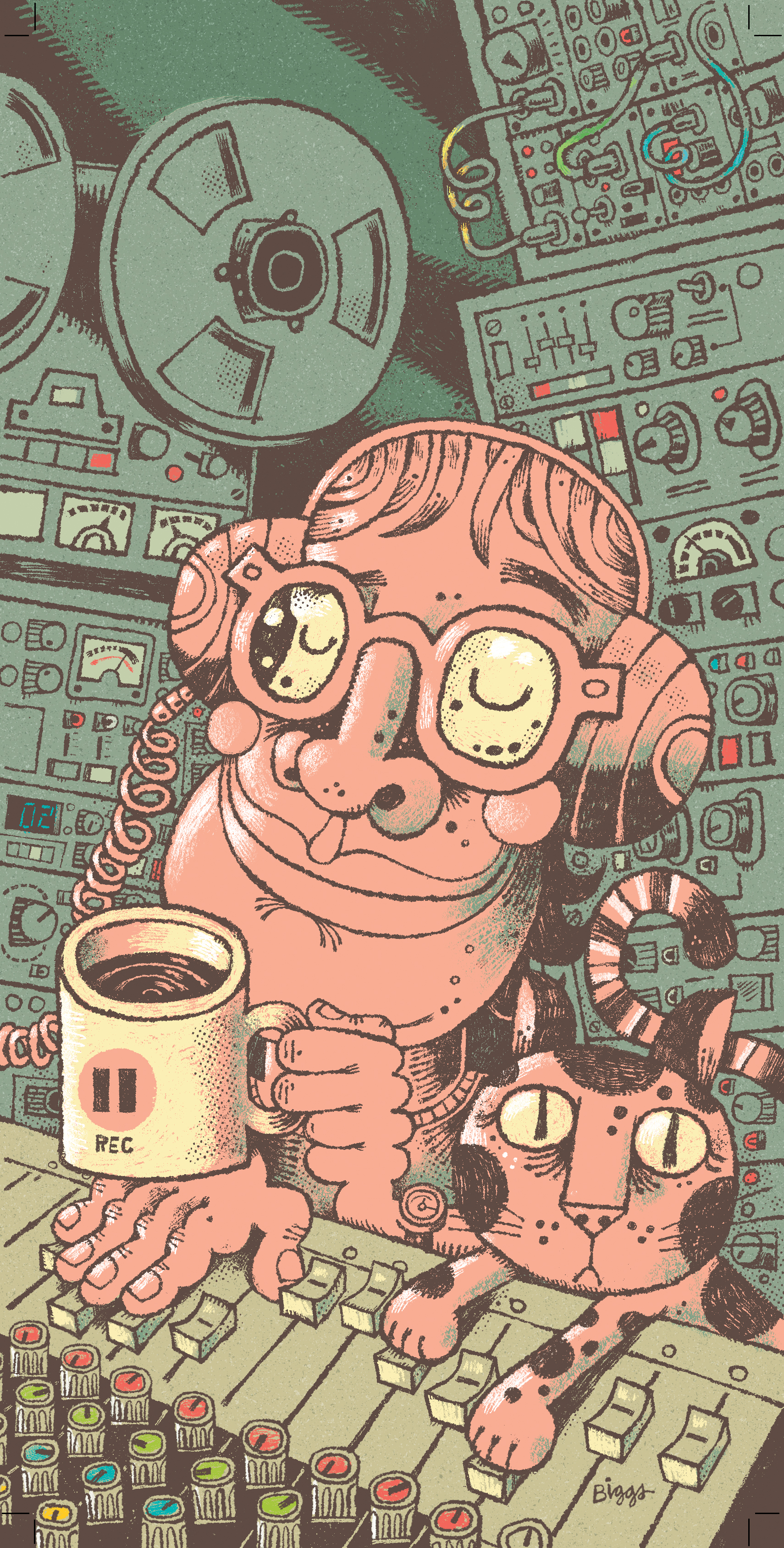

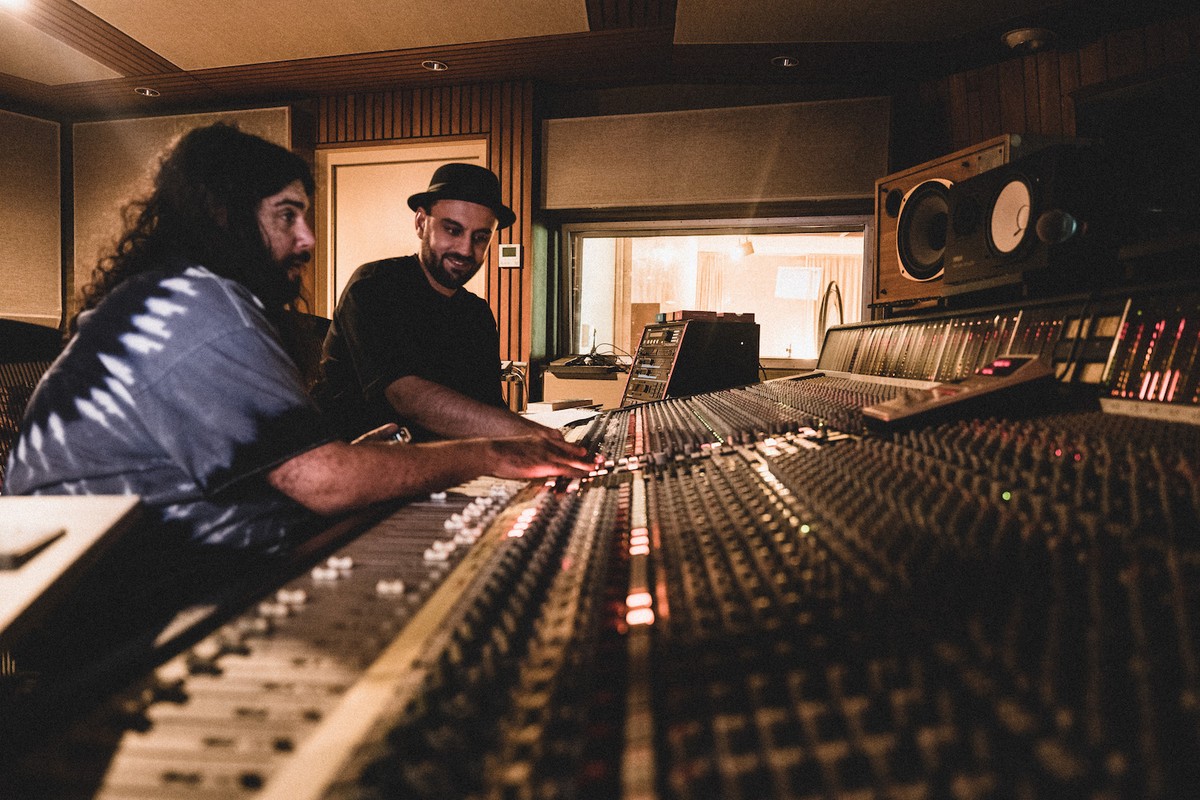
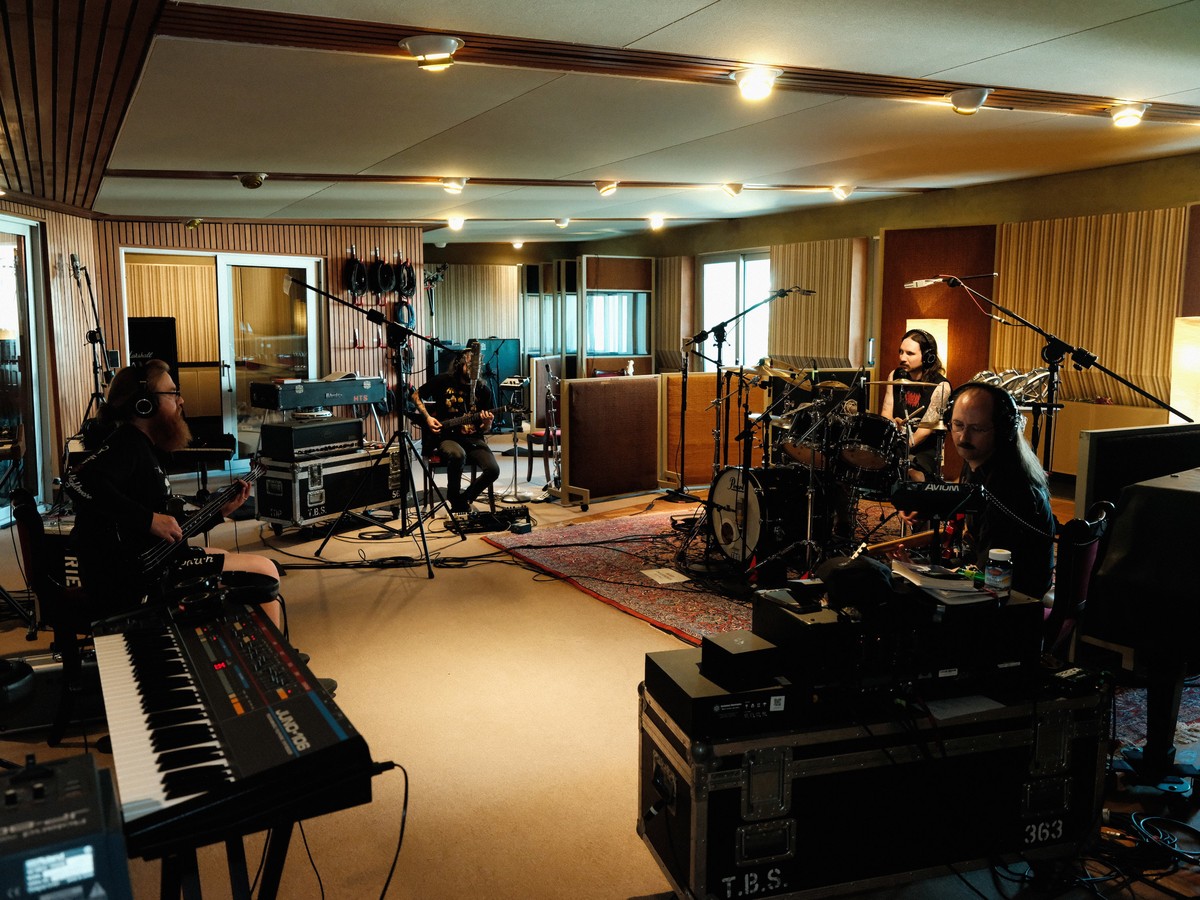
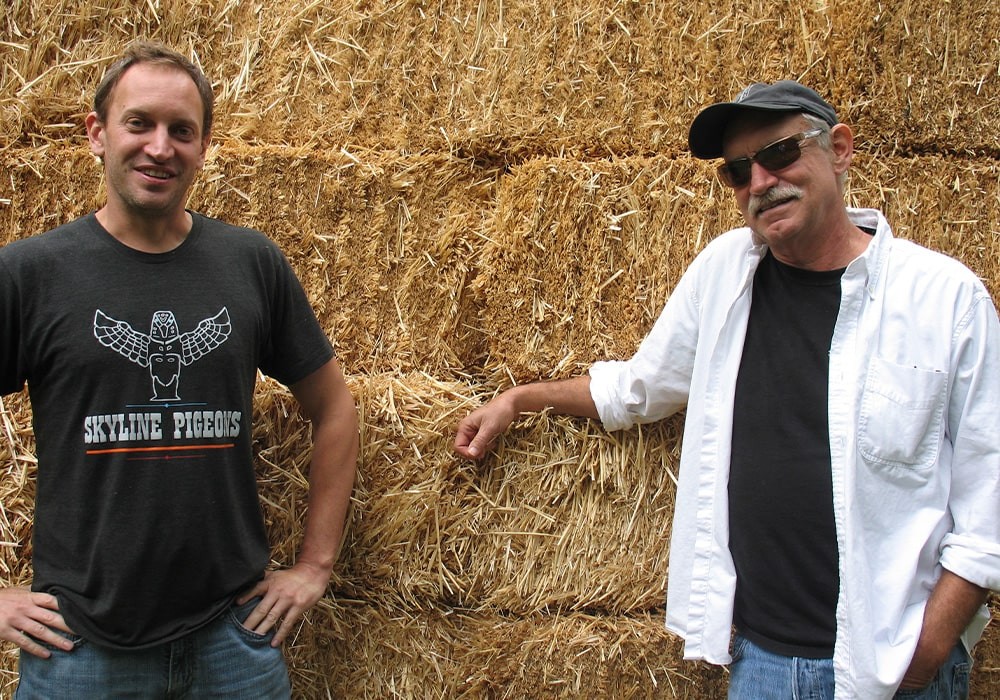
_display_horizontal.jpg)
